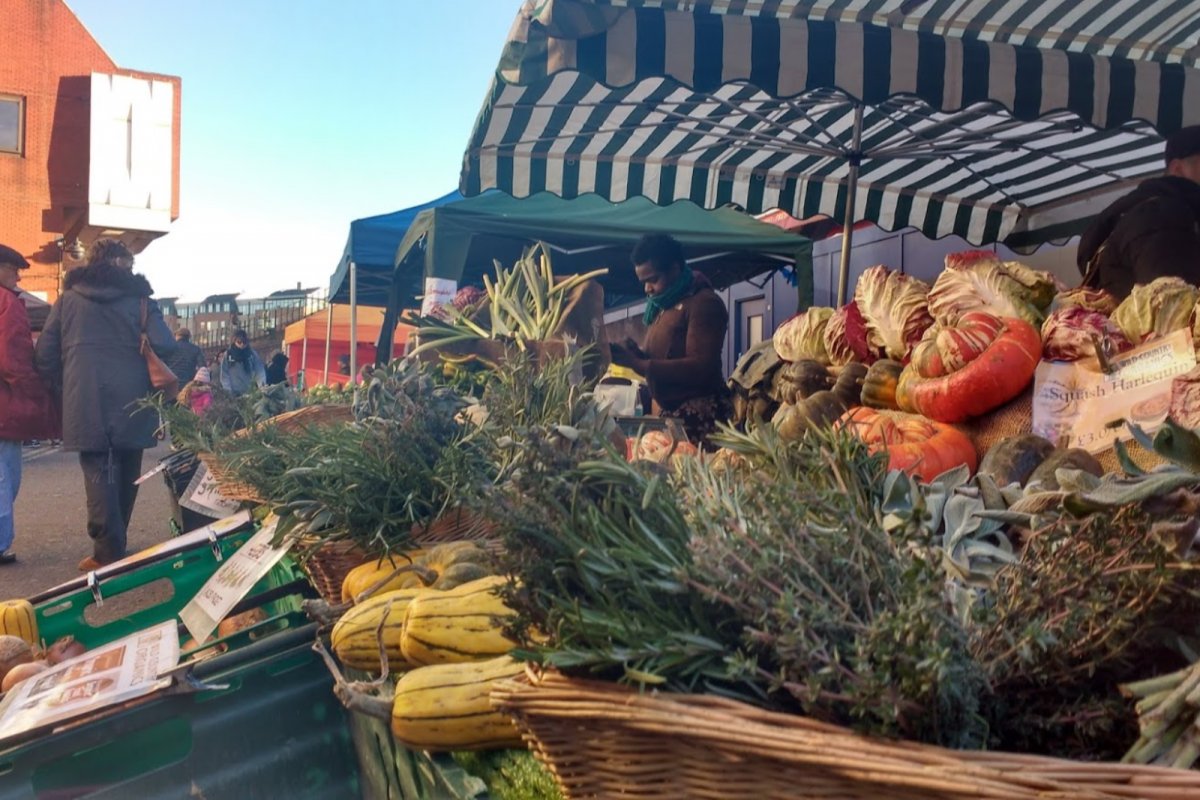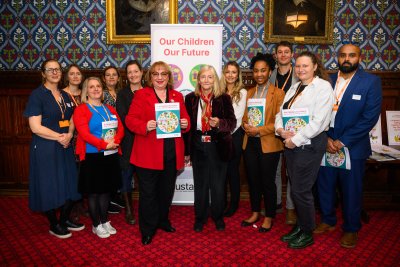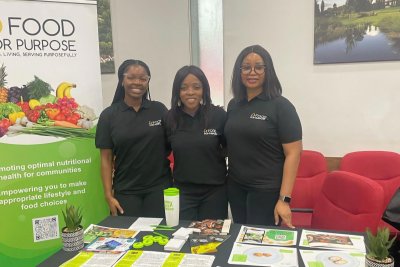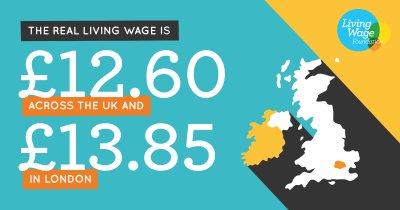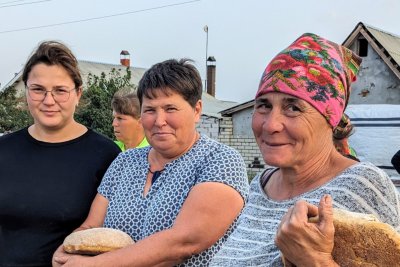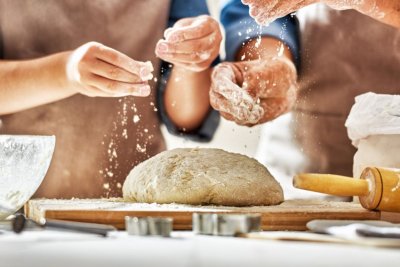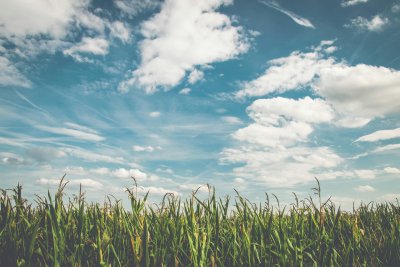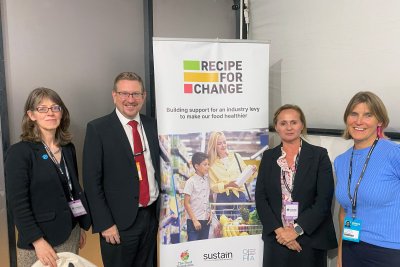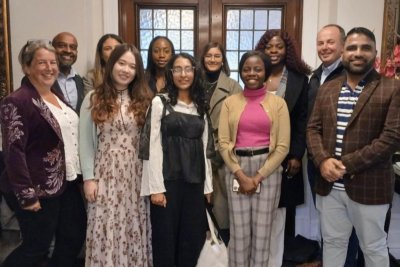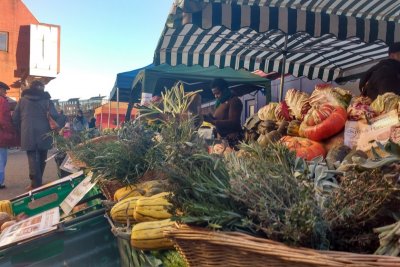 Credit: Ruth Westcott
Credit: Ruth Westcott
This month we caught up with Dr Angelina Sanderson Bellamy about co-production and how she will be using it later this month when she facilitates Bridging the Gap’s co-production process. Over three days of workshops she will bring together inspiring people from across the food system to shape the programme and guide us towards our policy and advocacy asks.
Hi Angelina! Let’s start at the beginning, why has food been central in your career so far?
Food has always been part of my academic journey. It started when I was an undergraduate student and I had got involved in environmental issues. Gretchen Daily and Paul Erhlich were two big names in the space at the time and when I met Gretchen Daily in person, she was lovely and super supportive. I ended up spending three months doing research in southern Costa Rica looking at how landscape matrixes can have a positive impact on coffee farms.
It was amazing to be able to do research on coffee and bananas because we all consume them and they’re commonly traded products. It really gave me an understanding, not just of what was happening on the farm, but the wider governance system that sits around those farms and how that influences the decisions that are made.
From the very start, my real objective was to understand how we can drive more sustainable farming practices. I would say that in the last few years, I have been thinking more about accessibility issues in food and so there are now three core strands to the work that I do, which are how to make our food systems healthier, more sustainable and accessible for all. I think they are the critical parts. We can't really do one without thinking about the other and we can’t have success if we haven't achieved it on all three fronts.
How did co-production come into your work?
Co-production is something that came very naturally to me, I found I was doing it before I understood what it was. It's about building partnerships and relationships with the people who are working in the food system and working together to figure out how we are going to make the changes that we need to be making. Where these partners sit in the food system, whether it's academic or practitioner, to me that's irrelevant. What's your expertise? What's your experience with the food system? And if it's different from mine them I'm learning from you, and this is really interesting! So let’s bring this all together and figure out how we can tackle these challenges together. Using co-production is just a very natural way of working for me. Then of course I learned more formally about co-production and the different elements of it.
So, in your own words, how would you describe co-production?
It's working together with people across that challenge space. It means respecting all forms of knowledge and including that in the process. It’s about working as a partnership to come up with ideas for the action that you're going to take and developing that together based on a commonly recognised problem.
Does using co-production allow the work that you're doing in an academic sphere to be more external facing and reaching out to other work that's happening in the food system?
Definitely. I have my collaborations with academic partners, but usually that's together with other food systems stakeholders and practitioners. I build teams. I have good networks and when something comes along, an opportunity or an idea, I think, "Oh, who do I know in my network who has the expertise to tackle this particular opportunity?" and then I bring those different people together. What’s been really positive is that in the last five years the importance of including co-production in research processes has been recognised. That's been brilliant because the external environment is saying we need to be doing this and it's what I do anyway.
Do you have any highlights of great projects that have involved co-production and shown how it can work?
The FPAC Group (Food Policy Alliance Cymru) has been a fantastic partnership, and that's co-production. Most of what we do is not research oriented. It's much more thinking about how we can impact food policy in Wales. Sometimes research comes into it because we think, "Oh, we need to develop the evidence base to be able to support the arguments that we're putting forward to these different people."
I would say that group has been a great example of co-production in action. Part of what's been so enjoyable are the relationships; it's a really nice group of people! It’s a big time commitment that we all put in and none of us get paid for that particular activity, but we see how effective it's been and we all believe very much in the big picture of what we're trying to do. It's one of the activities I really enjoy doing.
Can you tell me a bit about the TGRAINS Project?
The research I did with TGRAINS looked at what happens when we build relationships back into the food system. For that project I was looking at direct relationships between producers and customers and so I followed Commuinity Supported Agriculture (CSA) veg bag schemes across four different farms and looked at the impact of them.
We followed people who had recently joined the veg bag scheme, and we found that they ate less meat, more veg and legumes and less fat and sugar, and overall the carbon emissions associated with their diet was 28% lower compared to the average UK household.
But we also recognised that people signing up to these schemes are upper middle class and white, within the UK and in other countries as well. So, there's a food justice issue here associated with promoting healthy and sustainable diets.
Could you explain how you're going to use co-production in Bridging the Gap?
Bridging the Gap is taking a food systems approach to addressing the issue of accessibility of healthy and sustainably produced food. This is one of the things that I have been really passionate about over the last few years. If we want to hit these net zero emission targets, we're not going to hit them without changing the food system and without changing our diets. And if most of the population can't afford a healthy and sustainable diet, then how are you going to hit those targets? So, from a legislative and policy perspective, you have to care and you have to do something.
The co-production that Bridging the Gap is trying to do has very similar objectives. It is bringing people that sit across key areas of the food system together and making sure that we're thinking about what is happening in those different spaces. The food system is massive so one person can't hold it all in their head, they can't be an expert of all these aspects. That's why it's important to bring together these different people – I would say they're all experts - and ask what these challenges look like and what are different potential pathways that could get us to food system transformation.
That’s the beauty of co-production. You get to pull in expertise from the different parts of the food system. And when people describe the kinds of stuff they do, I think, "Ooh, I didn't even know you could do that!" And then a whole new world of possibility opens.
Bridging the Gap: Bridging the Gap to climate and nature friendly food for all.
Sustain
The Green House
244-254 Cambridge Heath Road
London E2 9DA
020 3559 6777
sustain@sustainweb.org
Sustain advocates food and agriculture policies and practices that enhance the health and welfare of people and animals, improve the working and living environment, promote equity and enrich society and culture.
© Sustain 2024
Registered charity (no. 1018643)
Data privacy & cookies
Icons by Icons8
